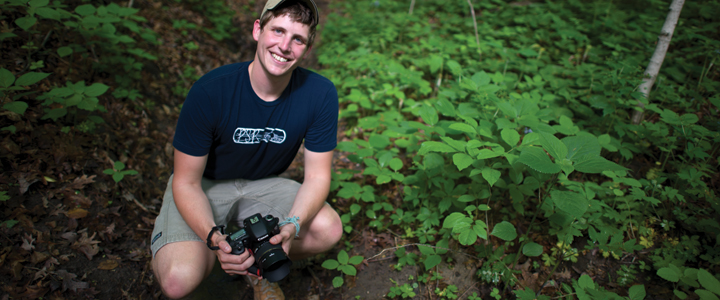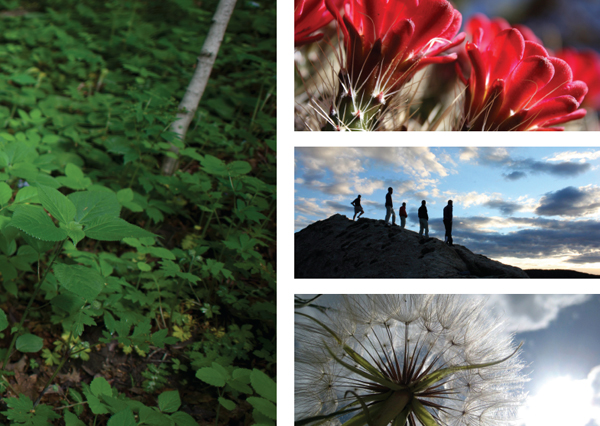
NURSING STUDENT USES NATURE PHOTOGRAPHY TO HELP PATIENTS LIVING WITH CHRONIC DISEASES
It's a snowy day in February 2011, but for the eight women gathered inside the First Presbyterian Church in Bedford, Ind., the winter weather is far from their minds. Instead, they sink their toes into a sandy beach, feel a cool mist on their faces from a nearby waterfall and breathe in the succulent scent of wildflowers in a forest. They have been transported to a different place, and nursing student John Scherschel (NUR '11)is the one taking them there.
The experience was part of Scherschel's senior research project exploring the impact of nature photography on women living with a chronic disease or disabling condition. "We know that firsthand exposure to natural environments decreases depression and stress," Scherschel says, "but what about those individuals who have limited access to, or are not able to engage in, natural environments?"
Knowing that Scherschel was an avid photographer and outdoorsman, Roberta Schweitzer, assistant professor of nursing, suggested that he explore whether exposure to nature photography would produce similar benefits to experiencing nature firsthand. It was the perfect project for Scherschel, who had spent the last three summers hiking and photographing his way through New Mexico. (Those are his photos, below.)
To prepare for his research, Scherschel completed an in-depth literature review and sorted through his large collection of nature photos with a critical eye, selecting just 27 for the study. The protocol involved showing the photos to a small group of women, all of whom had a chronic disease or disabling condition. The women were asked to talk about the emotions and experiences the photos evoked.

"The women shared qualitative data that I don't think we would have received without going through the photos," he says. "We spent as much as 15 minutes talking about how one photo made them feel. And for them to say they felt the warmth of sand between their toes when they were looking at a photo of a beach — that's pretty powerful when it's snowing outside."
In general, Scherschel says the women reported feeling more relaxed and experiencing less pain following the slide show. These findings could support use of nature photography in hospitals, clinics or doctors' offices to distract patients from their pain, depression or grief.
In spring 2011, he had the honor of being the first Purdue undergraduate nursing student to attend and present at the Midwest Nursing Research Society's 35th annual conference in Columbus, Ohio. "His research generated quite a bit of interest and discussion among researchers at the conference for its novelty and creativity," Schweitzer says. "The goal now is to use the pilot data to build a health promotion intervention program for women with chronic conditions, incorporating nature photography that complements use of traditional medicine in increasing well-being."
Scherschel graduated in May 2011 and plans to work in a critical care unit or emergency department. He hopes to pursue a graduate degree and continue his research.
To read more about Scherschel, visit Purdue's "5 Students Who Live Well" at www.purdue.edu/fivestudents/live_well/scherschel.html.
















